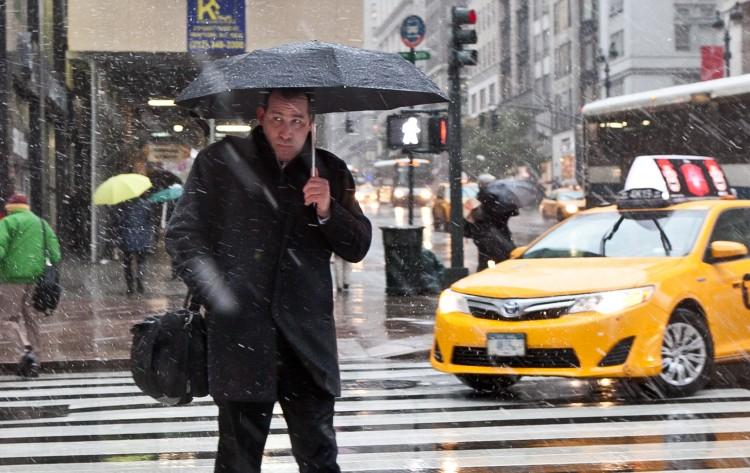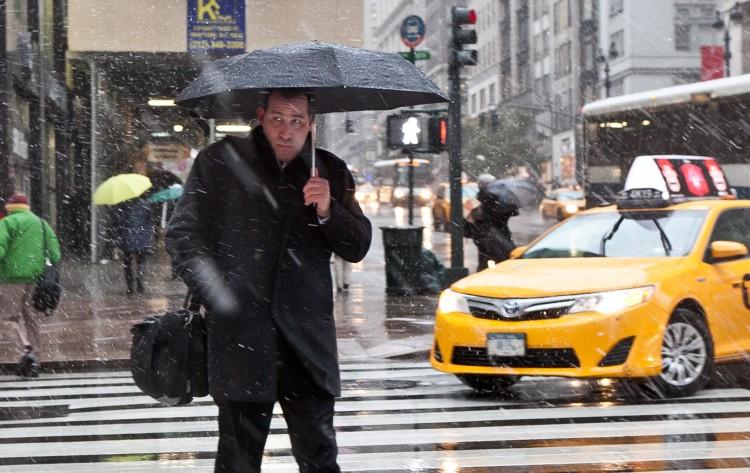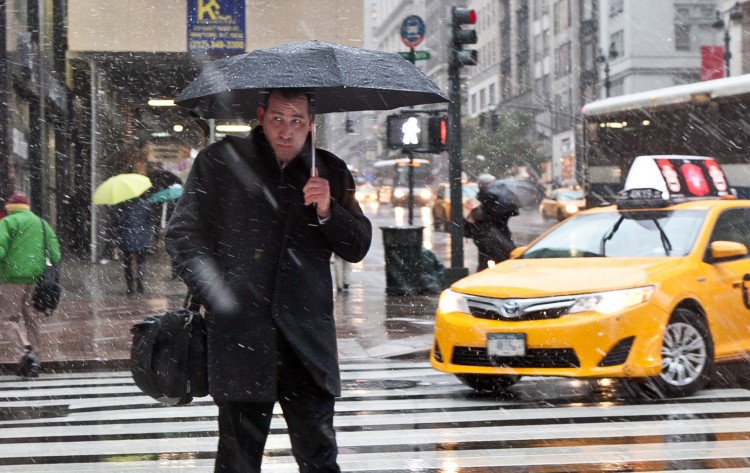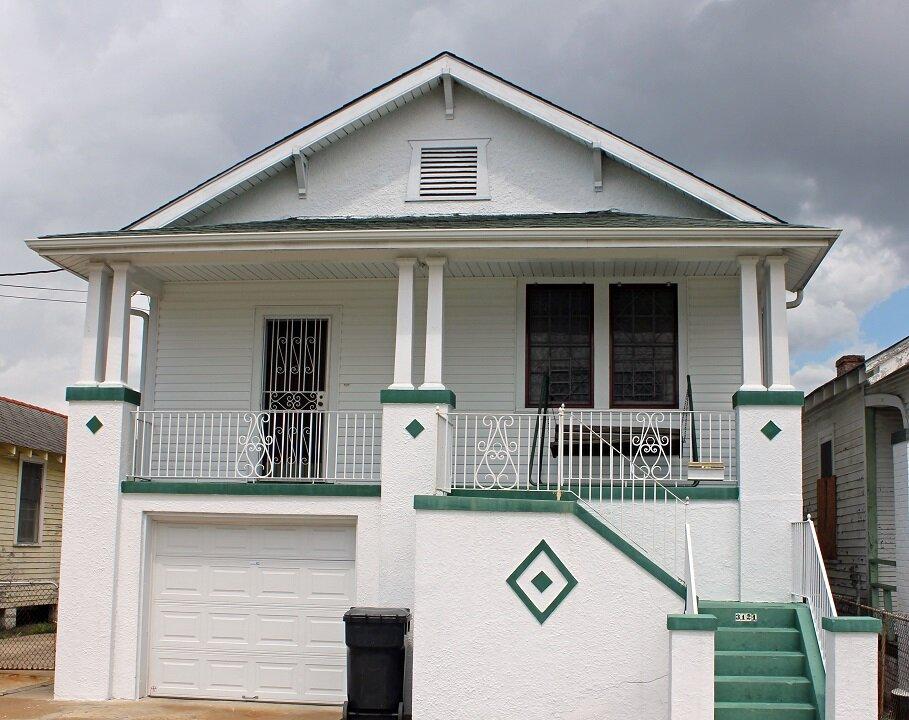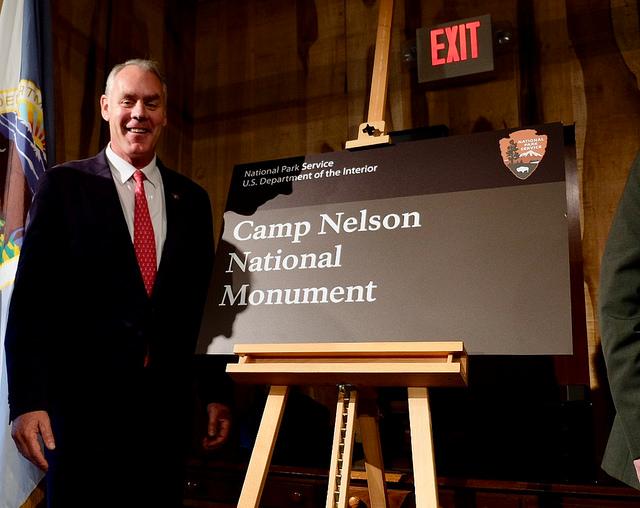NEW YORK—Strong winds once again blew through New York City, this time accompanied by much colder temperatures and wet snow as the season’s first nor'easter hit the city Wednesday night.
Flood warnings were issued to low-lying areas, many of which were still trying to recover from Hurricane Sandy. Mass evacuations for zone A were not ordered, however, four chronic care facilities in the Rockaways were evacuated.
“We haven’t, and won’t, order the kind of large-scale evacuation that we did in advance of Hurricane Sandy, but if you were experiencing significant flooding during Sandy, you should consider taking shelter with friends or family in a safer spot, or using one of the city’s storm shelters,” Mayor Bloomberg said at a press conference Wednesday.
The mayor said that it was not a simple task to order a mass evacuation, like he did during hurricanes Sandy and Irene. “You have to be very careful in terms of when you recommend evacuation because if people think you are crying wolf, the next time when it is really a serious threat, they might not do it,” Bloomberg said.
The NYPD was driving around making announcements over loudspeakers in areas most vulnerable to more flooding, specifically along the coastline.
The Federal Emergency Management Association (FEMA) pulled its mobile disaster recovery centers to higher ground during the storm, for the safety of the workers and its customers, however, those sites were only to assist storm victims with signing up for relief, which can still be done via phone or through the FEMA website.
According to FEMA spokesman Bill Rukeyser these mobile units were not for handing out food or providing shelter. Food distribution sites, which were handled by local partners in the area, often ran right beside the mobile units, but were not sponsored or run by FEMA.
Extra Hardship
The storm brings with it much colder temperatures, an extra hardship for the 66,000 still without power in the hardest hit areas of New York.
Buses have been set up to get people to more than 200 warming centers, which are open during the daytime hours and volunteers continue to pass out blankets to those in need.
After ConEdison worked around the clock since Sunday, Charles Cognata, a resident in Sheepshead Bay was able to get electricity and gas to his building, however due to serious damage from the flooding, the boiler still needed to be replaced in order to get heat.
“We have to get heat, that is important. We got gas, we got electric, but I need heat,” Cognata said.
Cognata said he was one of the last remaining residents in the building, and was keeping warm with a portable heater. He said a boiler was ordered and hoped to have a hot shower soon.
The mayor said he did not expect this new storm to hinder the recovery efforts by much. “It will be relatively minor but just more work for utility companies,” Mayor Bloomberg said. “Our expectation is tomorrow we will be back working and it will not slow down.”
The Epoch Times publishes in 35 countries and in 19 languages. Subscribe to our e-newsletter.
Please send news tips to [email protected]
